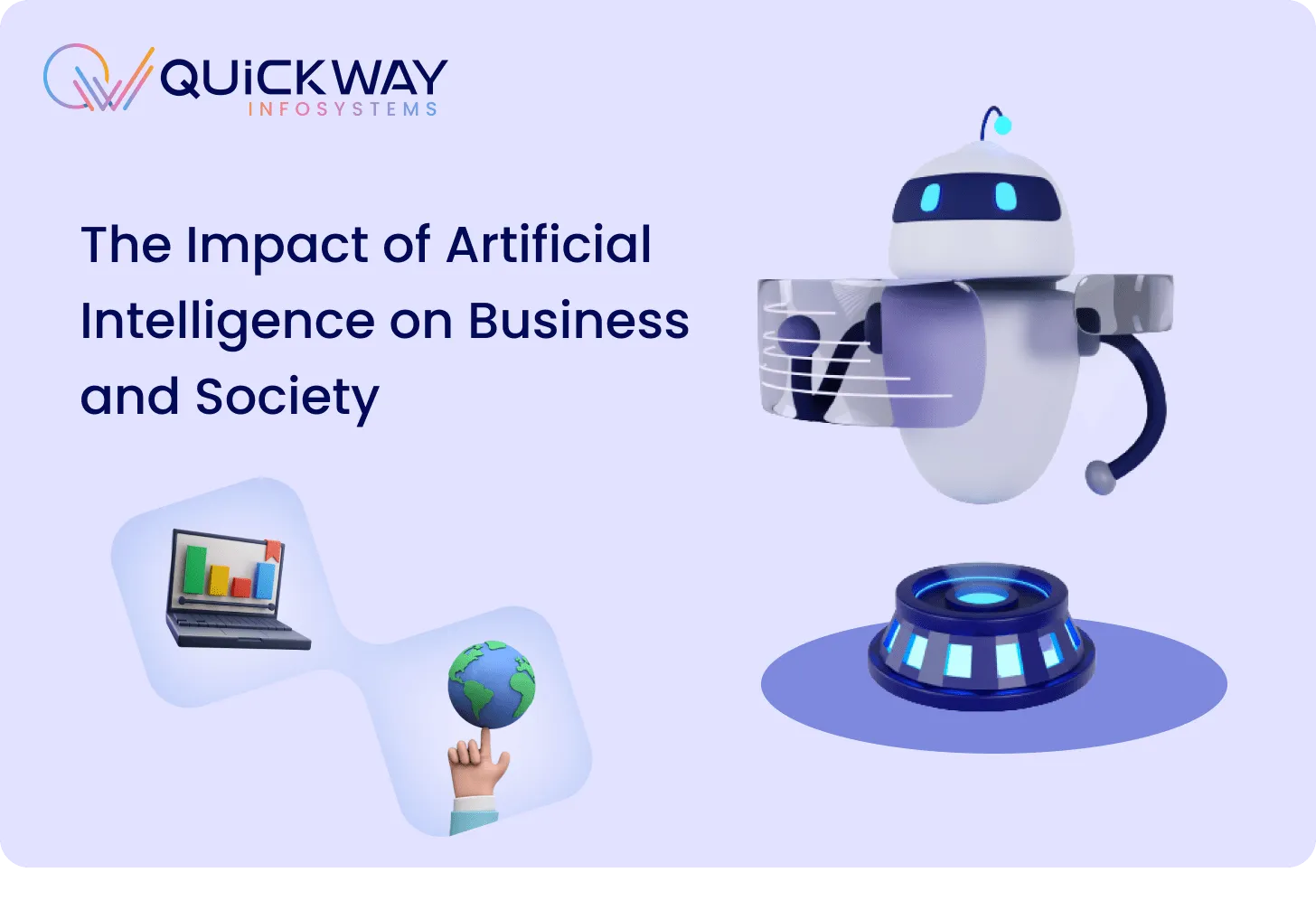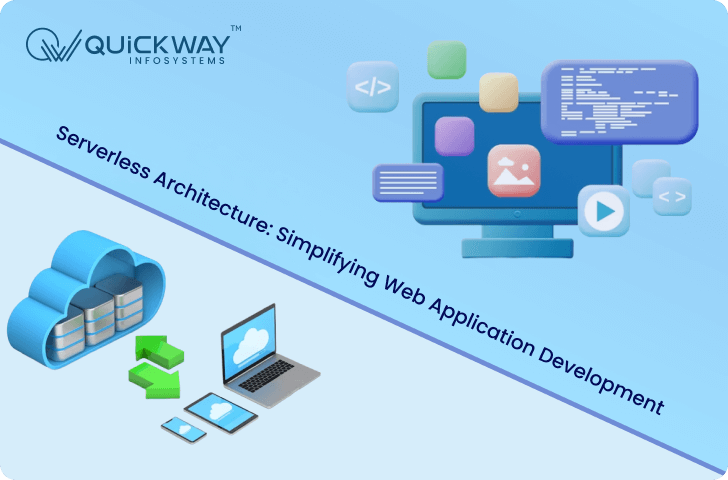Did you know that the global artificial intelligence market size is projected to expand at a compound annual growth rate (CAGR) of 37.3% from 2023 to 2030? It is projected to reach $1,811.8 billion by 2030.
Isn’t that amazing!
AI is no longer a futuristic concept; it is now an integral and pervasive part of our daily lives, transforming industries, enhancing decision-making processes, & revolutionizing the way we interact with technology. It exists and has a substantial impact on business and society. In fact, AI is reshaping numerous businesses, from automating work to enhancing customer service.
The impacts of artificial intelligence are wide-ranging and intricate. The way we live our lives and entire industries could be revolutionized by it. Let’s dig deeper now!
What is AI?
Artificial Intelligence (AI) is a process of programming computers to make decisions for themselves. This can be done in several ways, including using algorithms, heuristics or even machine learning. AI has several advantages over traditional forms of decision-making, such as the ability to process large amounts of data quickly and accurately, identify patterns and make predictions.
Businesses are using AI to automate tasks, improve decision-making and boost efficiency. In society, AI is being used to tackle issues such as crime, health care and climate change.
The potential applications of AI are virtually limitless, and its impact on business and society will continue to grow in the future.
Ready to kick start your new project? Get a free quote today.
The History of Artificial Intelligence
Artificial intelligence has been around for centuries, with early examples including the Mechanical Turk and Ada Lovelace. However, it was not until the 1950s that AI began to take off with the advent of digital computers and new algorithms.
In 1956, a team of researchers at Dartmouth College organized a conference on AI, which is often considered to be the birth of the field. Interest in AI continued to grow throughout the 1960s and 1970s, with major advances in natural language processing and expert systems.
However, AI also attracted criticism during this time, with some believing that it would never be possible to create intelligent machines. This skepticism led to a so-called “AI winter” in the 1980s when funding for AI research dried up.
Fortunately, this pessimism was short-lived and AI experienced a renaissance in the 1990s due to improved computer hardware and software and increased interest from the business community. Since then, AI has continued to make rapid progress and is now used in many fields such as healthcare, finance, transportation, and manufacturing.
How can you use AI in business?
Artificial intelligence is increasingly being used in businesses to automate tasks, improve decision making and assist employees.
Some of the smartest ways AI is being used in business include:
- Automating tasks: AI can automate repetitive tasks such as data entry or analysis. This can free up employees’ time to focus on more strategic tasks.
- Improving decision-making: AI can help businesses make better decisions by providing insights that would not be possible to obtain with human analysis alone. For example, AI can be used to identify patterns in data that could indicate future trends.
- Assisting employees: AI-powered chatbots and virtual assistants can help employees with tasks such as customer service, scheduling appointments or booking travel.
Ready to kick start your new project? Get a free quote today.
The Potential Impact of Artificial Intelligence on Society
The potential impact of artificial intelligence on society is both positive and negative. On the positive side, AI can improve productivity and efficiency in many sectors of society, including healthcare, transportation, manufacturing, and logistics.
Additionally, AI can help us make better decisions by providing more accurate and up-to-date information. It has the potential to improve communication and collaboration between people and organizations.
AI is frequently compared to the industrial revolution. AI will have both positive and negative effects; although some believe that technology has the ability to create more jobs than it eliminates, others say that it will result in widespread unemployment and worsen inequality.
AI will significantly impact many industries, including healthcare, finance, manufacturing, transportation, and logistics. In healthcare, AI can be used to diagnose diseases earlier and more accurately, develop new treatments and drugs, and improve patient care.
In finance, AI can be used for fraud detection, risk management, and financial analysis. AI can be used in manufacturing for quality control, supply chain management, and predictive maintenance. AI can be used in transportation and logistics for route planning and optimization, fleet management, and predictive maintenance.
Businesses are using AI to automate processes and make better decisions, while society is grappling with the ethical implications of increasingly intelligent machines.
Are there any disadvantages of Artificial Intelligence?
The main disadvantage of AI is that it has the potential to automate tasks which humans currently perform. This could lead to large-scale job losses in several industries and increase inequality across society.
AI also poses several ethical concerns, such as the risk of biased decision-making and the potential for abuse and misuse. As AI technology develops, these concerns will need to be addressed to ensure that AI is used responsibly and for the benefit of all.
Another disadvantage of AI is that it requires data to be effective. This data can be difficult and costly, particularly for small businesses. Additionally, AI technology is constantly evolving, making it challenging to keep up with the latest advancements.
Pros of AI
Businesses and society often debate the pros and cons of artificial intelligence (AI). Some believe that AI will positively impact business and society, while others believe that AI will have a negative impact.
Some of the pros of AI include:
- Increased efficiency: By automating operations that are presently performed by human personnel, AI can help businesses run more smoothly. Employees may have more time to focus on other duties as a result, or organizations may be able to cut their workforce.
- Better decision-making: By giving organizations data-driven insights, AI can assist enterprises in making better decisions. AI, for instance, can examine customer data to find trends and patterns.
- Cost savings: AI can help businesses save money by reducing the need for human labor. In some cases, AI-powered automation can also help companies to avoid the cost of mistakes made by human employees.
Ready to kick start your new project? Get a free quote today.
Conclusion
In conclusion, the impact of artificial intelligence (AI) on business and society is undeniable and multifaceted. AI’s capabilities, such as automating tasks, improving decision-making, and assisting employees, have already transformed various industries, and its potential applications are vast. As AI continues to evolve, its influence on society will be both positive and negative.
On the positive side, AI has the potential to enhance productivity and efficiency across multiple sectors, including healthcare, finance, manufacturing, transportation, and logistics. It can lead to more accurate and informed decision-making, enabling better communication and collaboration between individuals and organizations. Moreover, AI has the power to revolutionize healthcare with earlier and more accurate diagnoses, new treatments, and improved patient care. In finance and manufacturing, AI aids in fraud detection, risk management, supply chain optimization, and predictive maintenance, further improving business operations.
However, AI also presents challenges and concerns. The automation of tasks currently performed by humans can lead to job losses and widen societal inequalities. Ethical issues arise concerning biased decision-making, potential misuse, and privacy concerns related to the collection and usage of personal data. These ethical implications must be addressed to ensure responsible and beneficial AI use.



